Table of Contents
Craig Armstrong sheet music
Come join us now, and enjoy playing your beloved music and browse through great scores of every level and styles!
Can’t find the songbook you’re looking for? Please, email us at: sheetmusiclibrarypdf@gmail.com We’d like to help you!
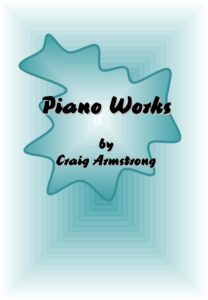
Best Sheet Music download from our Library.
Contents List Download:
Please, subscribe to our Sheet Music Library.
If you are already a subscriber, please, check our NEW SCORES’ page every month for new sheet music. THANK YOU!
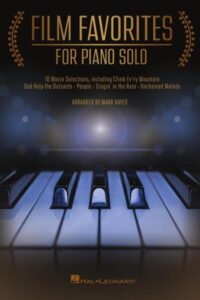
Browse in the Library:
Or browse in the categories menus & download the Library Catalog PDF:
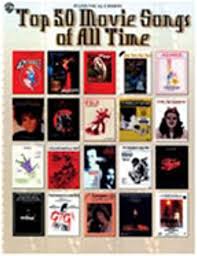
Craig Armstrong: The Maestro of Modern Film Composition
Craig Armstrong is one of the most influential contemporary composers, known for his lush orchestral arrangements, electronic textures, and emotionally charged film scores. His work spans classical, electronic, and film music, blending genres to create a signature sound that has defined some of cinema’s most memorable moments. From collaborations with Baz Luhrmann (Moulin Rouge!, Romeo + Juliet) to his haunting score for The Great Gatsby (2013), Armstrong’s music transcends boundaries.
This in-depth article explores:
- Biography (early life, education, career)
- Musical Style & Techniques (harmony, instrumentation, recurring motifs)
- Influences & Inspirations
- Legacy & Impact on Film Music
- Major Works & Filmography
- Discography & Key Albums
- Documentaries & Video Links
1. Biography
Early Life & Education
Born on April 29, 1959, in Glasgow, Scotland, Craig Armstrong showed an early affinity for music. He studied composition and piano at the Royal Academy of Music in London, where he honed his classical training. Later, he attended the University of Glasgow, immersing himself in both traditional and experimental music.
Career Beginnings
Armstrong’s early career involved collaborations with pop and electronic artists, including:
- Massive Attack (contributing to Blue Lines and Protection)
- Madonna (orchestral arrangements for Bedtime Stories)
- U2 (string arrangements for “Stay (Faraway, So Close!)”)
His ability to merge classical orchestration with modern production made him a sought-after arranger.
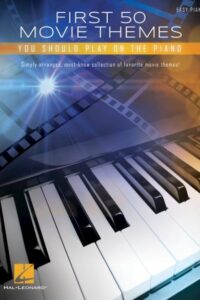
Breakthrough in Film Music
Armstrong’s film career took off with Baz Luhrmann’s Romeo + Juliet (1996), where his reworking of “Balcony Scene” and “O Verona” showcased his gift for blending Shakespearean drama with contemporary soundscapes. This led to further collaborations with Luhrmann, including Moulin Rouge! (2001) and The Great Gatsby (2013).
2. Musical Style & Techniques
Harmony & Chord Progressions
Armstrong’s music often features:
- Lush, Romantic Harmonies – Extended chords (9ths, 11ths) reminiscent of Debussy and Ravel.
- Modal Interchange – Shifting between major and minor for emotional contrast (e.g., “Glasgow Love Theme” from Love Actually).
- Minimalist Repetition – Simple motifs developed into grand crescendos (“Escape” from Plunkett & Macleane).
Instrumentation & Textures
- Orchestral Sweep – Full symphony arrangements with heavy use of strings and brass.
- Electronic Fusion – Synth pads, trip-hop beats (influenced by his work with Massive Attack).
- Piano as a Narrative Device – His solo piano pieces (“Weather Storm”) are deeply introspective.
Signature Licks & Motifs
- Suspended Resolutions – Delayed cadences creating tension (“Balcony Scene”).
- Leitmotifs – Recurring themes tied to characters (e.g., Satine’s theme in Moulin Rouge!).
3. Influences & Inspirations
Armstrong’s style draws from:
- Classical: Arvo Pärt, Henryk Górecki, Samuel Barber
- Film Composers: Ennio Morricone, John Barry, Bernard Herrmann
- Electronic/Trip-Hop: Massive Attack, Portishead
- Pop/Rock: The Beatles, David Bowie
4. Legacy & Impact
- Bridging Classical and Modern Music – Armstrong helped legitimize electronic elements in orchestral film scoring.
- Influence on Contemporary Composers – Artists like Ólafur Arnalds and Nils Frahm cite his work.
- Awards & Recognition:
- BAFTA for Moulin Rouge! (2001)
- Golden Globe for The Great Gatsby (2013)
- Ivor Novello Award for Outstanding Contribution to British Music
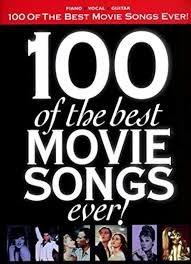
5. Major Works & Filmography
Notable Film Scores
| Year | Film | Director | Key Tracks |
|---|---|---|---|
| 1996 | Romeo + Juliet | Baz Luhrmann | “Balcony Scene,” “O Verona” |
| 2001 | Moulin Rouge! | Baz Luhrmann | “Come What May,” “El Tango de Roxanne” |
| 2003 | Love Actually | Richard Curtis | “Glasgow Love Theme” |
| 2013 | The Great Gatsby | Baz Luhrmann | “Together,” “Young and Beautiful” (co-wrote with Lana Del Rey) |
| 2019 | The Silent Storm | Corinna McFarlane | “The Storm” |
Collaborations with Pop Artists
- Madonna – Orchestration on Bedtime Stories (1994)
- U2 – String arrangements for “Stay (Faraway, So Close!)”
- Lana Del Rey – Co-wrote “Young and Beautiful” for The Great Gatsby
6. Discography
Solo Albums
- The Space Between Us (1998) – Featuring “Weather Storm,” “This Love”
- As If to Nothing (2002) – “Ruthless Gravity,” “Wake Up in New York”
- Memory Takes My Hand (2008) – “Hymn 2,” “Piano & Cello”
- It’s Nearly Tomorrow (2014) – “Glasgow,” “Sun on You”
Film Soundtracks (Select)
- Plunkett & Macleane (1999)
- Orphans (1998)
- World Trade Center (2006)
7. Documentaries & Video Links
Documentaries & Interviews
- “The Making of Moulin Rouge!” (2001)
- “Craig Armstrong: Composing for Film” (BBC, 2013)
- Craig Armstrong – Piano Works (The Complete Film) – Please, watch it here below.
Key Compositions (YouTube Links)
- Glasgow Love Theme (Love Actually)
- Balcony Scene (Romeo + Juliet)
- Weather Storm (The Space Between Us)
- Together (The Great Gatsby)
Craig Armstrong’s music is a bridge between classical grandeur and contemporary innovation. His ability to evoke deep emotion through orchestral-electronic fusion has left an indelible mark on film and modern composition. Whether through the tragic romance of Romeo + Juliet or the jazzy decadence of The Great Gatsby, Armstrong’s work remains timeless.
For further listening: Explore his solo albums and film scores—each reveals new layers of his genius.
Craig Armstrong – Piano Works (The Complete Film)
To accompany his 2004 album Piano Works, Craig Armstrong travelled to Paris cinema Studio Éclair, home to the New Wave of French film and a place where artistic history was made. Gradually, Armstrong enters into a reverie of his own creation as he plays original compositions and piano arrangements of much-loved tracks such as Weather Storm and Satine’s Theme.
Craig Armstrong’s influences; the sea, the city streets, natural images and the rooftops of Paris are woven into the hour-long performance. Piano Works: The Film was directed by David Barnard and edited by Phil Richardson. The sound producer was Geoff Foster, director of photography Brett Turnbull and producer Jacqui Edenbrow.
Sanctuary Records / Universal Records
